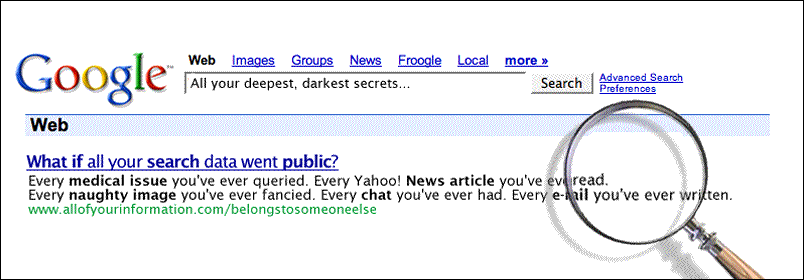 TD Original
TD Original
In Google, Yahoo, Should We Trust?
Feb 15, 2006 It's time we started asking better questions about our queries. 1 2 3 4 5If all this sounds like a privacy disaster in the making, it is one that until recently has received scant attention in the mainstream press. Google's generally gung-ho media coverage has glossed over some of the serious concerns that privacy advocates have voiced about its information-hording habits.
This week's cover story in Time magazine is a perfect example. Despite a cover headline that provocatively asks, "Can We Trust Google With Our Secrets?" the article largely dodges the question, instead retracing (yet again) the admittedly impressive rise of the seven-year-old firm. Not until the last paragraph does it break what is surely news to many people, mentioning in passing that Google "retains loads of our data -- what we search for, what we say in our Gmails -- so we need to know it won't be evil with them."
Well, indeed, it would be reassuring to know Google intends to uphold its unofficial motto of "Don't Be Evil" with regard to our records. But how does one prove that? What we really need to know more about -- and this is a matter of fact, not conjecture -- is what data are being retained; for how long; who has access to the information, and for what purposes; and what our rights are under the law.
Given the fact that Google just made a $1-billion investment in AOL (which is owned by Time magazine's parent company, Time Warner), one might expect the magazine to give the search company gentle treatment on touchy issues. It's not going to bite the hand that is helping to rescue papa. But how about some tougher questioning? The softballs lobbed in the accompanying interview transcript reveal that the Google guys are still fun and down to earth, which they are, but they shed no light on the advertised topic of "Can we trust them?"
You need to be a supporter to comment.
There are currently no responses to this article.
Be the first to respond.